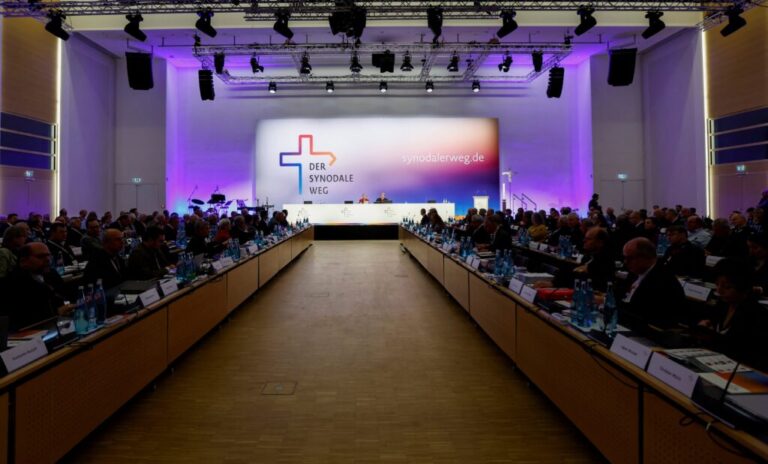The reform dialogue of the Catholic Church in Germany is entering its next round despite concerns raised by the Vatican.
The country’s Synodal Committee will hold its constituent meeting in Essen on Friday. During the two-day meeting bishops and laypeople will adopt the statutes and procedural rules for the new committee. The aim is to pave the way for further reforms, including equal rights and the encouragement of more membership involvement.
The committee’s 74 members are to prepare the establishment of a Synodal Council by March 2026 at the latest. This body will provide a mechanism for laypeople and bishops to continue their consultations on the core topics of the Synodal Path: Power, the role of women, sexual morality and the priestly way of life.
The Vatican has repeatedly spoken out against the establishment of a Synodal Council, which it sees as a potential threat to the authority of Germany’s bishops. Rome maintains that the Catholic Church in Germany is not authorised to establish such a governing body, made up of lay people and clergy. However, more than two thirds of all participants in the Synodal Way, including the bishops, voted in favour of establishing a Synodal Council despite the Vatican’s concerns.
The preparatory committee now consists nominally of the 27 local bishops, 27 representatives of the Central Committee of German Catholics (ZdK) and a further 20 members elected by the Synodal Way’s plenary assembly. Bishops Hanke (Eichstaett), Oster (Passau), Voderholzer (Regensburg) and Cardinal Woelki (Cologne) have all clearly positioned themselves against a Synodal Committee and Council and also do not want to contribute to it financially. However, the other 23 dioceses are sticking to their funding commitment and are still looking for a suitable legal and canonical structure.
The ZdK formulated some clear expectations before its first meeting, including that the Synodal Committee should meet in public – as the Synodal Path already does. Unlike the Synodal Way, however, this time there should no longer be the possibility for a third of the bishops to block resolutions.
Originally reported by KNA Germany.



